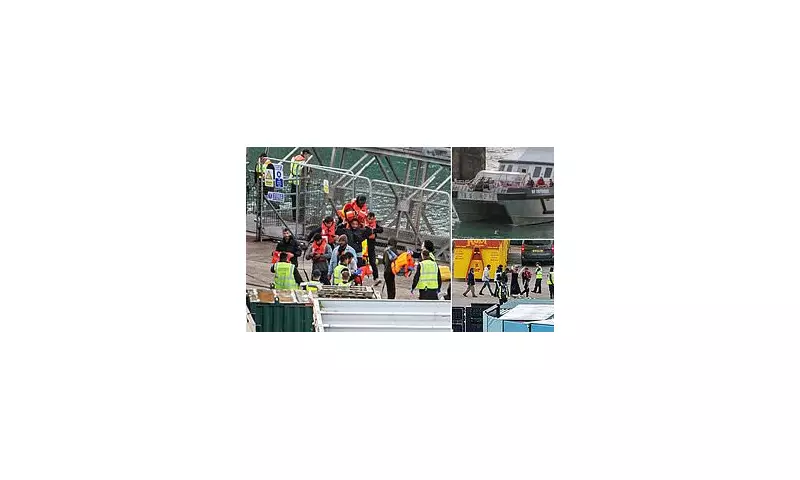
In a dramatic test of Britain's border controls, more than 1,000 migrants successfully crossed the English Channel in small boats on Thursday, marking one of the highest daily totals recorded this year. The surge in arrivals represents a significant early challenge for Sir Keir Starmer's new government, which had prominently pledged to end the controversial and expensive use of hotels for asylum seekers.
Record Numbers Strain New System
Official figures confirm that 882 people made the perilous journey across the world's busiest shipping lane on Thursday, with an additional 202 arriving in the early hours of Friday morning—bringing the two-day total to a staggering 1,084 individuals. This influx has immediately pressured the government's commitment to move asylum seekers out of hotel accommodations, which cost British taxpayers approximately £8 million daily.
Labour's Immigration Dilemma
Home Secretary Yvette Cooper faces mounting pressure as the numbers continue to climb. Despite Labour's election promise to establish a new Border Security Command and crack down on smuggling networks, the reality of processing thousands of new arrivals presents an immediate operational challenge. The government now must balance its humanitarian obligations with its commitment to taxpayers to reduce accommodation costs.
Where Are the Migrants Coming From?
According to initial reports, the majority of those arriving hail from conflict zones and economically distressed nations including Iran, Syria, Iraq, Afghanistan, and Eritrea. Many pay substantial sums to people smuggling gangs operating along the French coast, risking their lives in overcrowded, unseaworthy vessels to reach British shores.
The Hotel Controversy
The use of hotels to house asylum seekers has become a flashpoint in the immigration debate, with local communities often expressing frustration over the policy. The previous Conservative government had already begun moving migrants out of some hotels, a process the Labour administration vowed to accelerate. However, with daily arrivals now reaching quadruple digits, finding alternative accommodation presents a formidable challenge.
What's Next for UK Border Policy?
Border Force officials and immigration experts are closely watching how the new government responds to this early test. The establishment of the promised Border Security Command, designed to work with international partners to disrupt smuggling operations, now takes on increased urgency. Meanwhile, processing centres face growing backlogs as they work to handle the surge in applications.
The coming weeks will prove critical for Labour's immigration strategy, as summer weather typically brings increased crossing attempts. All eyes remain on the Channel, where the delicate balance between border security and humanitarian response continues to play out on Britain's front line.





